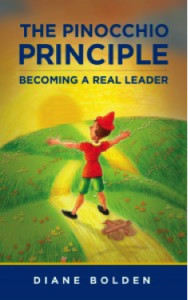How to Survive (and Thrive) in Change and Chaos
Many of us are experiencing a great deal of pressure, anxiety and change.
The holidays are upon us. The leadership of our country is transitioning. And many are in the midst of personal or professional change as well. Frustration and turmoil are common responses to this kind of uncertainty and disorientation, leading to exhaustion and hopelessness. But consider this as you think about things that may feel as though they are spinning out of control…
What if the only thing truly standing in your way of peace, productivity, and purpose – was your thinking?
One of the key attributes embodied by extraordinary leaders in all walks of life is encapsulated in the word “responsibility” – not just in a moral or ethical sense of being accountable for our actions, but also remembering that there is wisdom in recognizing that we have the ability to choose our response. That response we choose will have a resounding impact on ourselves and everyone around us.
Here are four tips to help you move gracefully through change and chaos:
(1) Identify what is within your power to influence.
The greatest change agents start by recognizing what they have to work with before identifying change that can be sustained. They don’t waste their time worrying about things that are truly out of their control, like changing the weather. Instead, they focus their attention and energy on those things that they can influence. The greatest leaders know that the most powerful and sustainable change must start from within themselves.
(2) Recognize your stories.
“We are not troubled by things, but by the opinion we have of things.” – Epictetus
The thing that fascinates me about a seemingly chaotic state of affairs is not so much what is happening, but the stories we are telling ourselves about what it means and the impact those stories are having on the way we are responding to it. When we react to things with fear, we end up amplifying what we are afraid of and add to the anxiety. Our fears drive us to act in ways that keep us from acting on our intuition and finding the answers that will truly serve us. Sometimes, we end up behaving in ways that make our fictional stories become real.
As an example, when you are feeling so overwhelmed that you question whether you’ll get all the important things done, you are likely to approach things in a way that draws them out – perhaps by procrastinating, making things more complicated than they need to be, or using more energy to resist and worry than it would take to actually get things done.
(3) Think of the worst-case scenario.
Our rational minds want answers and security. They need to figure everything out and almost automatically occupy themselves with trying to sort through data to arrive at conclusions. The problem is that our minds are plugging imaginary variables into the equation that end up further exacerbating the anxiety we are already experiencing. When they are done with one variable, they plug in another and the churning continues, leaving us with an uneasiness that keeps us on edge.
In the grip of this madness, sometimes the best thing you can do is indulge your mind with a variable that will allow it to do its thing. Go ahead and plug in the worst-case scenario. If the worst possible thing happened, what would you do? Allow yourself to sit with that question for awhile. Let the fear move through you and keep asking the question, what would I do that would allow everything to be OK? If you sit long enough with your question, you will arrive at some workable alternatives and reconnect with that part of yourself that is strong, resourceful and resilient.
(4) Now, come back to the present.
Armed with the knowledge that you will be OK even if the worst possible thing happens, you can come back into the present and recognize your fearful thoughts for what they are – fearful thoughts. One of the best pieces of advice I ever got, which I pass along frequently, is don’t believe everything you think.
In the present moment, devoid of your stories about variables that are truly unknown, you are OK. And when new events begin to unfold, if you stay in the moment and access your inner wisdom, you will know exactly what you need to do – or not to do – to be OK then too. And as you go about your daily life in this way, your calm resolve will permeate your interactions with others and through your example, you will help others to rise to their challenges in ways that unearth the greatness in themselves as well.
Interested in additional strategies for navigating change, challenge, and uncertainty with effectiveness and grace? Stay tuned for more information on my upcoming online course and group intensive, The Real Leader’s Guide to Freedom and Flow or click here to get on the waiting list and get first priority (with no obligation) at the limited spots that will soon be available.
 The above article contains excerpts from my book, The Pinocchio Principle: Becoming the Leader You Were Born to Be, available on Amazon.com and BarnesandNoble.com.
The above article contains excerpts from my book, The Pinocchio Principle: Becoming the Leader You Were Born to Be, available on Amazon.com and BarnesandNoble.com.

